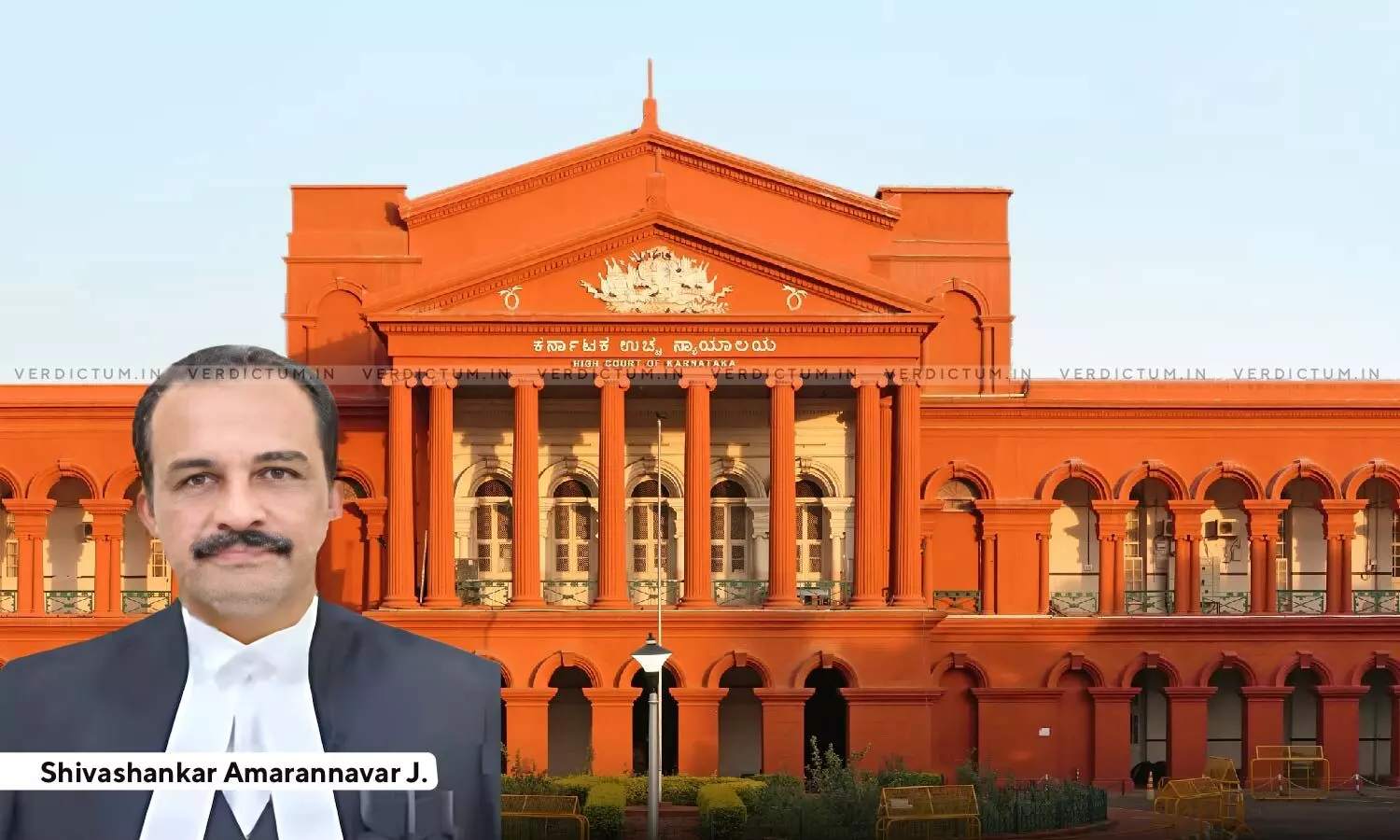
Cheque Bounce Complaint Filed By Sole Proprietor Is Maintainable Even If Payee Is Proprietary Concern: Karnataka HC
 |
|The Karnataka High Court held that, when the payee is a proprietary concern, the complaint under Section 138 of the Negotiable Instrument Act, 1881, can be filed by the proprietor of the proprietary concern, describing himself as sole proprietor of the payee.
A petition was filed under Section 482 of the Code of Criminal Procedure (“Cr.P.C.”) seeking to quash the cognizance order and proceedings pending before the Magistrate under Section 138 of the Negotiable Instrument Act, 1881.
The Bench of Justice Shivashankar Amarannavar observed, “Considering the above aspects if payee is the proprietary concern the proprietor can file complaint while describing as sole proprietor of proprietary concern…In the case on hand, the complaint has been filed by the sole proprietor of Sri Vasavi Traders. Therefore, contention of learned counsel for the petitioner that complaint is not filed by the payee cannot be accepted since proprietary concern and proprietor are inseparable as proprietor is owner of the proprietary concern.”
Advocate Laxman T. Mantagani appeared for the Petitioner whereas Advocate KL Patil appeared for the Respondent.
The Respondent-complainant had filed a complaint against the Petitioner for the dishonour of the cheque and the Magistrate after recording the sworn statement had taken cognizance against the Petitioner.
The Court considered the point of whether a complaint filed by the Proprietor is maintainable if the payee is a proprietary concern.
The Court said “The proprietary concern is not a legal entity or juristic or legal person unlike partnership firm or company which are created or formed under Indian Partnership Act and Indian Companies Act. There are no legal requirements for establishing a single proprietorship. In other cases, legal formalities are necessary. The owner/proprietor has the authority to close the firm at any time. The proprietor/owner is personally accountable for all consequences. If he takes out a loan for its firm, he will be held accountable for any obligations. Proprietor is entitled to all earnings and losses generated by the proprietary concern. Sole proprietor is personally accountable for paying any debts if he cannot pay with its revenues. He might be sued individually by creditors to recover the debt.”
The Court reiterated the landmark judgments of the Apex Court in Vinayak Purshottam Dube through LRs v. Jayashree Padamkar Bhat and Ors. (2024), Raghulakshminarayan v. M/s Fine Tubes(2007) and M/s Shankar Finance and Investments v. State of A.P. and Ors.(2009). In Shankar Finance it was held that where payee is proprietary concern, the complaint can be filed: (i) by the proprietor of the proprietary concern, describing himself as the sole proprietor of the “payee”; (ii) the proprietary concern, describing itself as a sole proprietary concern, represented by its sole proprietor; and (iii) the proprietor or the proprietary concern represented by the attorney holder under a power of attorney executed by the sole proprietor.
Accordingly, the petition was dismissed.
Cause Title: Shri Baburao v. Shri SM Ravindrashetty (Neutral Citation:2024:KHC-D:5470)
Appearances:
Petitioner: Advocate Laxman T. Mantagani
Respondents: Advocate KL Patil